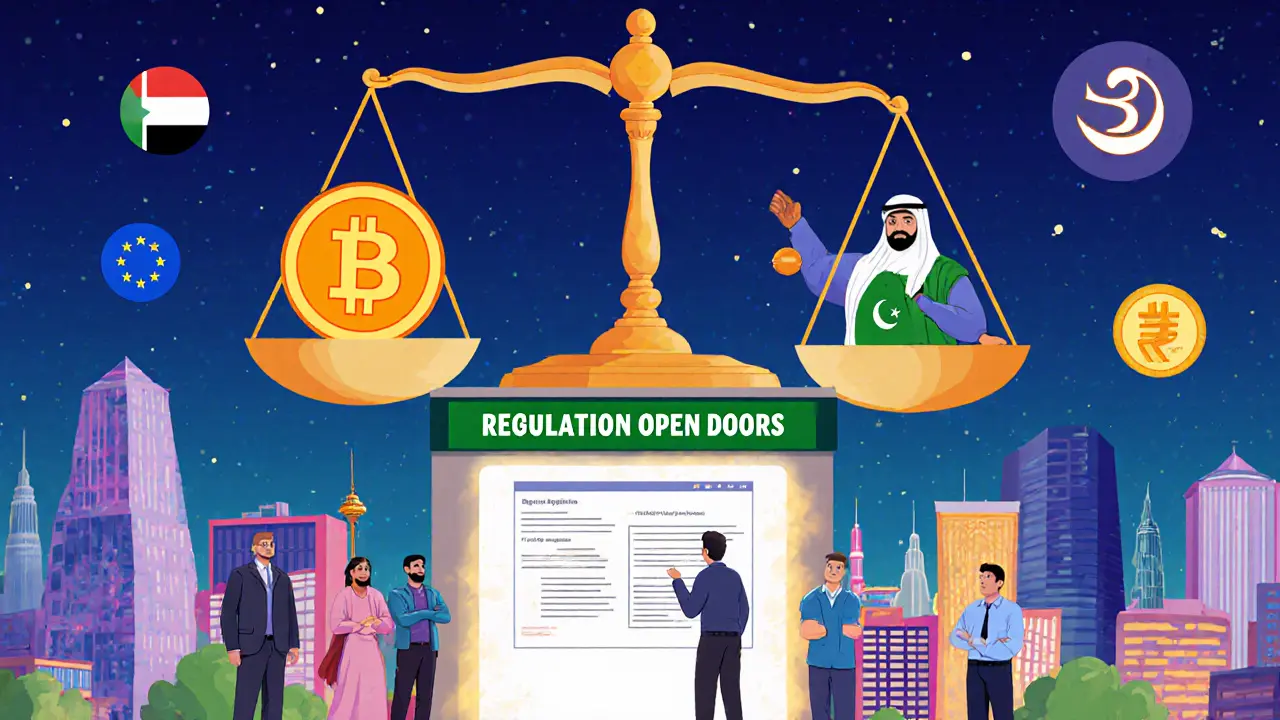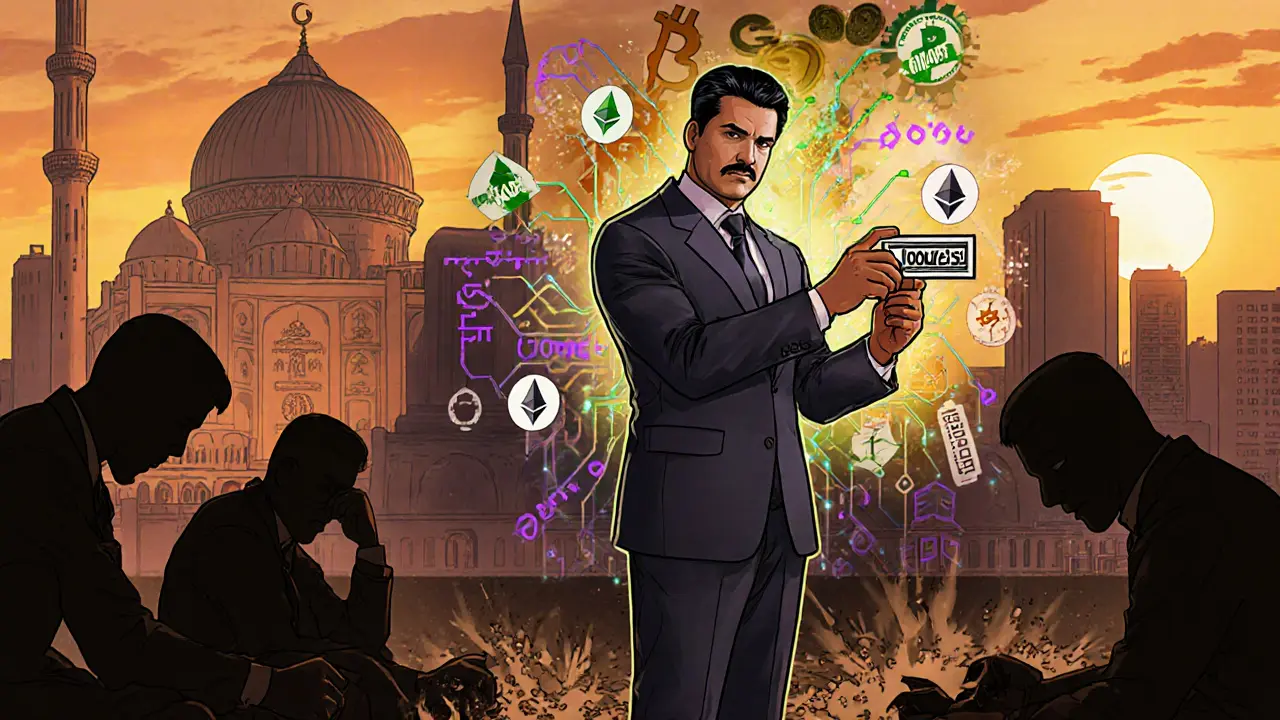PVARA License Eligibility Checker
PVARA Business License Eligibility Check
Check if your business meets requirements to operate as a licensed crypto provider in Pakistan under PVARA regulations.
Before July 2025, crypto users in Pakistan operated in a legal gray zone. The State Bank of Pakistan had never officially banned Bitcoin or other digital assets, but it also didn’t recognize them. Banks blocked transactions. Exchanges shut down. People used peer-to-peer platforms to trade - quietly, risky, and without protection. That changed when President Asif Ali Zardari signed the Virtual Assets Regulatory Authority Ordinance 2025. Out of that came PVARA - Pakistan’s first standalone regulator for virtual assets.
What Is PVARA, Really?
PVARA stands for Pakistan Virtual Assets Regulatory Authority. It’s not just another department inside the finance ministry. It’s an independent federal body with full legal power to license, audit, fine, and shut down crypto businesses operating in Pakistan. Think of it like the SEC in the U.S., but focused only on digital assets - exchanges, wallets, staking platforms, NFT marketplaces, and DeFi protocols. The law behind it - the Virtual Assets Act, 2025 - gives PVARA control over every part of the crypto ecosystem. No company can legally offer crypto services in Pakistan without its approval. That includes local startups and international firms trying to enter the market. The goal? To stop money laundering, protect investors, and bring crypto out of the shadows.Who’s in Charge?
Bilal bin Saqib, Minister of State for Crypto and Blockchain, leads PVARA as its chair. He’s not just a bureaucrat - he’s actively pushing for global partnerships. In public statements, he’s called on top crypto firms from the UAE, Singapore, and Europe to apply for licenses. His message is clear: Pakistan isn’t closing its doors. It’s opening them - but only to those who play by the rules. The State Bank of Pakistan (SBP) is also involved. Governor Jameel Ahmad confirmed at the Reuters NEXT summit that Pakistan is building a central bank digital currency (CBDC) pilot alongside PVARA’s work. That means the country is preparing for two parallel tracks: regulating private crypto and launching its own digital rupee.How to Get Licensed by PVARA
If you run a crypto business and want to operate in Pakistan, you can’t just set up a server and start accepting users. You need PVARA’s license. And the bar is high. The authority launched an Expression of Interest (EoI) process in August 2025. Only companies already licensed by recognized regulators - like the UAE’s VARA, Singapore’s MAS, the UK’s FCA, or the U.S. SEC - are eligible. No new startups without a track record. No offshore shell companies. To apply, you must submit:- Full company profile and ownership structure
- Proof of existing licenses in other jurisdictions
- Detailed description of services (trading, custody, payments, etc.)
- Technical security standards - including cold storage, KYC/AML systems, and penetration testing results
- Assets under management and revenue history
- Compliance record - no past fines or sanctions
- A Pakistan-specific business model - how you’ll serve local users, handle local taxes, and comply with Shariah principles if needed

Why This Matters for Users
For everyday Pakistanis who trade crypto, this isn’t just about regulation - it’s about safety. Before PVARA, there was no recourse if an exchange disappeared. No way to report fraud. No legal protection for your holdings. Now, licensed platforms must follow FATF standards. That means:- Know Your Customer (KYC) checks for every user
- Transaction monitoring for suspicious activity
- Reporting to authorities if money laundering is suspected
- Segregated customer funds - your crypto can’t be mixed with the company’s
What About Shariah Compliance?
Pakistan’s Islamic finance sector is huge. So PVARA didn’t ignore it. The authority is working with scholars and fintech firms to create regulatory sandboxes for Shariah-compliant crypto products. That could mean:- Tokenized halal investment funds
- Staking platforms that avoid interest-based rewards
- Blockchain-based zakat distribution systems

How PVARA Compares to Other Countries
Many countries took a slow, patchwork approach to crypto regulation. India banned banks from serving crypto firms for years. Nigeria cracked down on exchanges. China outright banned trading. Pakistan did something different. It built a full regulator from scratch - with clear powers, international benchmarks, and a clear path for businesses to enter. It’s modeled after:- UAE’s VARA - licensing, sandbox testing, and global outreach
- Singapore’s MAS - strict AML, technology-first approach
- EU’s MiCA - comprehensive rules for all virtual asset service providers
What’s Next for PVARA?
Right now, PVARA is in the early stages. The EoI window is open. The first licenses haven’t been issued yet. Operational guidelines are still being drafted. But the direction is clear. By early 2026, we’ll likely see:- The first licensed crypto exchanges in Pakistan
- Official partnerships with international firms like Kraken, Binance (if compliant), or Coinbase
- A pilot for Pakistan’s CBDC - possibly launched alongside PVARA’s first batch of licenses
- Public dashboards showing licensed entities and compliance status
What Should You Do Now?
If you’re a user in Pakistan:- Stop using unlicensed platforms. They’re now operating illegally.
- Wait for PVARA’s public list of approved providers. Check it before depositing funds.
- Understand that KYC is mandatory. No more anonymous trading.
- Start preparing your EoI if you’re already licensed abroad.
- Build a Pakistan-specific compliance plan - local tax rules, language support, customer service hours.
- Engage with PVARA’s public consultations. They’re still shaping rules.
Is crypto legal in Pakistan now?
Yes - but only through licensed providers. Before July 2025, crypto existed in a legal gray area. Now, it’s fully legal if you use a PVARA-authorized platform. Unlicensed exchanges and peer-to-peer trading are no longer protected under the law.
Can I still use Binance or Coinbase in Pakistan?
Not unless they get licensed by PVARA. Neither Binance nor Coinbase has applied publicly yet. Even if they do, they must meet strict criteria - including existing licenses from the U.S., EU, or UAE, full AML compliance, and a local operational plan. Until then, using them is risky and may violate new regulations.
Does PVARA ban decentralized crypto like Bitcoin?
No. PVARA doesn’t ban any specific cryptocurrency. It regulates the service providers - exchanges, wallets, custodians - not the assets themselves. You can still hold Bitcoin, Ethereum, or any other coin. But if you want to trade, stake, or convert it to fiat, you must use a licensed platform.
What happens if I use an unlicensed crypto platform?
You won’t be arrested. But you have no legal protection. If the platform freezes your funds, disappears, or gets hacked, you can’t file a complaint with PVARA. The authority only protects users of licensed providers. Using unlicensed services means you’re on your own.
Is there a timeline for when PVARA will start issuing licenses?
PVARA has not announced a fixed date, but industry insiders expect the first licenses to be granted in early 2026. The authority is still reviewing EoIs, finalizing technical standards, and setting up its internal compliance team. Businesses should prepare now - applications are open, but approvals will take time.
Will PVARA allow crypto mining in Pakistan?
Mining isn’t explicitly mentioned in the Virtual Assets Act, 2025. However, since mining is a form of crypto activity, it likely falls under PVARA’s scope. If you plan to mine at scale, you’ll need to register as a VASP and comply with energy usage and tax reporting rules. Small-scale personal mining for personal use isn’t targeted, but commercial operations will be regulated.

5 Comments
Finally someone in South Asia gets it. No more shady P2P scams. If you want to trade crypto, do it right. PVARA’s move is actually kinda impressive - regulated, transparent, and open to global players. This could be the start of something big.
This is huge for Pakistan. I’ve been trading on P2P for years, always scared something would go wrong. Now there’s a path to safety. Hope they move fast on licensing.
The ontological shift here is nontrivial: PVARA doesn’t merely regulate crypto - it reifies it as a legitimate asset class within the state’s sovereign financial architecture. The EoI criteria effectively create a regulatory moat around the market, leveraging existing global compliance infrastructures (FCA, MAS, etc.) as de facto credentialing mechanisms. This is a form of regulatory arbitrage in reverse - importing legitimacy rather than exporting risk.
This is a trap. Mark my words. PVARA is just a front for the military and intelligence agencies to monitor every crypto transaction. They’ll freeze your wallet, then say ‘oh we didn’t know you were holding Bitcoin’ - while quietly selling it on the dark web. And don’t get me started on the CBDC. That’s the real endgame. They’re not regulating crypto - they’re killing it with bureaucracy and surveillance. You think you’re safe? You’re just another data point in their blockchain ledger. Wake up.
Honestly, this is the most balanced crypto regulation I’ve seen from any developing country. The fact they’re inviting international firms with real licenses is smart. And the Shariah angle? Brilliant. I’ve got cousins in Lahore who never touched crypto because they thought it was haram. Now they can finally join without guilt. Big win.